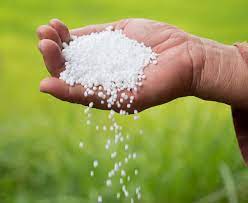Moscow February 3 2022: Russia has banned the export of ammonium nitrate (AN) from Feb. 2 to April 1, in a widely-expected move by the government as it seeks to guarantee affordable supplies for domestic farmers following the spike in global fertilizer prices.
Register Now
Ammonia gas, one of the key materials in AN production, has seen prices rise more than fivefold since October 2020. Rising costs for natural gas, a key input of AN production, have also impacted AN prices. Those higher prices have forced farmers to reconsider their nitrogen fertilizer usage, favoring legumes such as soybeans, which require less nitrogen fertilizer than corn and wheat. Ammonium nitrate is one of two main sources of nitrogen fertilizer, with the other main source of nitrogen being derived from urea.
“Additional demand has arisen on the domestic market for ammonium nitrate from both agricultural producers and industrial businesses,” Russia’s Ministry of Agriculture said in a statement released late Feb. 1 on its website. It said that the warm winter in southern Russia had brought forward spring sowing by several weeks and so stimulated demand for nitrogen fertilizers.
It is unclear what the effect of this news will have on further increases in fertilizer prices. However, one source importing European fertilizer to the UK said Feb. 2 that the news “had already been in the pipeline, and [AN] stocks have been built, certainly in the UK.”
Russia represents around two thirds of the world’s annual 20 million mt ammonium nitrate production, most of which is used in fertilizers to improve yields for crops such as corn, cotton and wheat.
The Food and Agriculture Organization of the United Nations expects total nitrogen fertilizer production to be around 190 million mt in 2022, according to its most recent market outlook published in 2019. Non-nitrogen fertilizers can also be produced from phosphoric acid and potash, and the FAO put production of those two substances at 64 million mt and 65 million mt, respectively.










